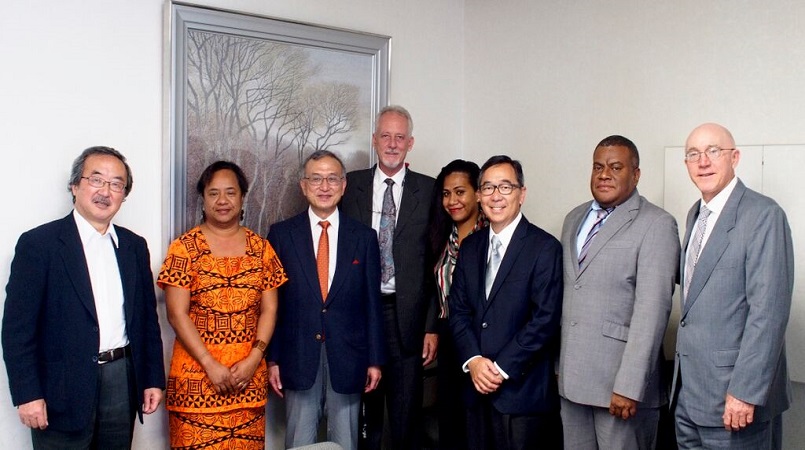
Japan’s interest in the Pacific Islands region remains steadfast.
But Japan to many Papua New Guineans and the rest of the Pacific is synonymous with the World Wars and to the newer generation, fast cars and cool mobile phones.
And that’s perhaps where it ends.
Papua New Guineans are perhaps one of Japan’s biggest clients in its used car business. This is one subject well to do Papua New Guineans are well versed with.
Owning a car is about status, lifestyle on the high end. Japan not only makes it possible for first time buyers, it also offers by far the cheapest rates there is using the best marketing strategy there is.
The capital, Port Moresby suffers horrendous traffic congestions during peak hour traffic.
Our roads have become flooded with cars Japan no longer needs, compounding a poor road system left largely unimproved since Independence.
During one Climate Change meeting in Bonn, Germany in 2010, Japan was commended for lowering its carbon emissions in the transport sector.
But that was short-lived when others said it “merely exported it to third world countries.”
A sheer lack of awareness and thereby very little understanding of something as simple as a car and climate change mean Papua New Guineans cannot connect the dots…at least not yet.
But its business as usual for second hand car dealers and their happy customers just as it is on the regional front between Japan and its Pacific Island friends.
In Tokyo this week, the Association for Promotion of International Corporation (APIC) is hosting senior journalists from Pacific Island countries in an effort to bridge the information gap between the region and itself.
Papua New Guinea is represented by the General Manager of LOOP PNG, Titi Gabi. Other participants are Islands Business Owner and Publisher and one of Fiji’s veteran journalists, Samisoni Pareti. Tonga’s Linny Folau from Matangi Tonga, Bill Jaynes – Managing Editor of the Kaselehlie Press in the Federated States of Micronesia and Giff Johnson, Editor of The Marshall Islands journal.
The program is coordinated by seasoned journalist and photographer, Floyd Takeuchi and the Foreign Press Center of Japan (FPCJ), the equivalent of the PNG Media Council.
The ultimate objective of this program is to give Pacific Island journalists the right information on its programs in the region and how much it will cost tax payers.
For a country that shares strong ties with the region and whose key commercial interest lies in our vast ocean and rich minerals, information on its development programs aimed at improving the lives of a population whose majority still live in villages as subsistence farmers is almost nonexistent.
Media coverage of PNG and Japan’s cooperation is limited to press releases by Government spin doctors.
At the Pacific journalists first media briefing on Wedneday, APIC Executive Director, Ambassador Shoji Sato said there are no Pacific correspondents in Japan although foreign media here number about 600 about half of whom are foreigners from 1,000 previously.
Its role is to put foreign journalists in touch with government officials for interviews, press briefings, expert opinion on key issues sought by respective journalists on matters of public interest.
That opportunity has been extended to visiting Pacific Journalists whose engagement from hereon will be confined to emails.
Japan’s work in the region is a silent one yet it focuses on key areas vital to the wellbeing of the population: Climate Change, Solid Waste Management, Disaster Risk Management, Renewable Energy, Education and Infrastructure.
Pacific Journalists were told the processes involved in applying for assistance on offer. That is a government responsibility. The government’s process of application and choice of location is an area worth pursuing by local media with the aim of getting as many Papua New Guineans involved in the decision making process.
